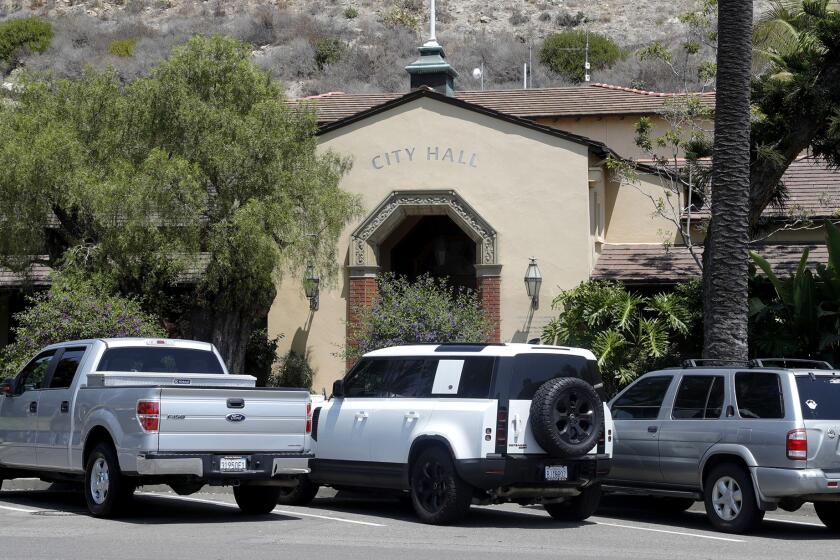Cities weigh options after state approves Orange County Needle Exchange Program
- Share via
Over strong objections from officials in affected cities, the California Department of Public Health on Monday approved a program that provides intravenous drug users in Orange County access to clean needles.
The authorization allows the Orange County Needle Exchange Program to start operating Monday in Anaheim, Costa Mesa, Orange and Santa Ana.
“There is a public health need for these services, due to the significant risk for transmission of HIV and Hepatitis C among people who inject drugs in Orange County,” Department of Public Health Director Karen Smith said in a letter to the cities.
The exchange formerly operated out of the Santa Ana Civic Center before that city shut it down in mid-January over concerns about the number of discarded syringes.
While local officials have objected to the mobile exchange, the program only needs state approval.
County Supervisor Andrew Do reiterated his misgivings Wednesday.
“Needle programs like this are a proven failure for the neighborhoods that have to live with their impact, which tend to be lower-income areas,” Do said in an email. “Drug needles end up in public libraries, parks and on sidewalks and jeopardize the health and safety of our children.”
He also complained that the state ignored the wishes of affected cities.
“What is most offensive about these needle exchange programs is they seek to subvert local interests and ignore city restrictions by Sacramento bureaucrats who don’t have to face the consequences of their decisions,” he added.
The Orange County Board of Supervisors unanimously decided at an emergency meeting on Friday morning to fight the state’s authorization in court. Do said that a complaint will be filed later Friday in San Diego Superior Court because it has an office of the state attorney general.
The county is also seeking a temporary restraining order on the needle exchange program. Do said they are hoping to hear back on that by Monday.
Several city officials and law enforcement personnel showed up to the meeting, including Costa Mesa Councilwoman Katrina Foley, Santa Ana Mayor Miguel Pulido and District Attorney Tony Rackauckas. Each official showed support for the county taking legal action against the state’s decision.
The Costa Mesa City Council also scheduled a special meeting for Friday afternoon to discuss potential legal action.
Smith argued in the letter that Orange is among the counties most vulnerable to the spread of injection-related HIV and hepatitis infections.
“The services proposed by [the needle exchange] will play a crucial public health role in the prevention of blood-borne diseases, as well as offering support and linkage to critical medical care and social services,” she wrote.
The comments didn’t sway Santa Ana city officials, who said in a statement that they were still “deeply concerned” about the “danger of abandoned syringes.”
Costa Mesa Mayor Sandy Genis called the program “irresponsible.”
Dallas Augustine, a board member for the needle exchange, said in an email that the group was pleased with the state’s decision.
“Orange County, like many other counties across the U.S., is facing an unprecedented opioid epidemic, and our harm reduction approach is a key, research-driven way to save lives and quell the spread of infectious disease,” her email stated. “We stand ready to not only continue serving our clients with the dignity and respect that they deserve, but respond to our neighbors’ concerns about needle litter by providing more consistent sharps disposal, community needle sweeps, and a hotline to report improperly discharged syringes.”
As part of the approval, the needle exchange will be required to work with the Orange County Health Care Agency to increase disposal options, start a hotline so needle exchange members can receive reports of improperly discarded syringes, and conduct syringe-recovery services in and around the areas of operation.
An independent party will assess syringe litter in each location with an eye toward possibly improving the exchange’s approach to clean-up.
The program is approved for a two-year period ending Aug. 6, 2020, but the organization can apply for an extension before then.
Twitter:@benbrazilpilot
All the latest on Orange County from Orange County.
Get our free TimesOC newsletter.
You may occasionally receive promotional content from the Daily Pilot.




